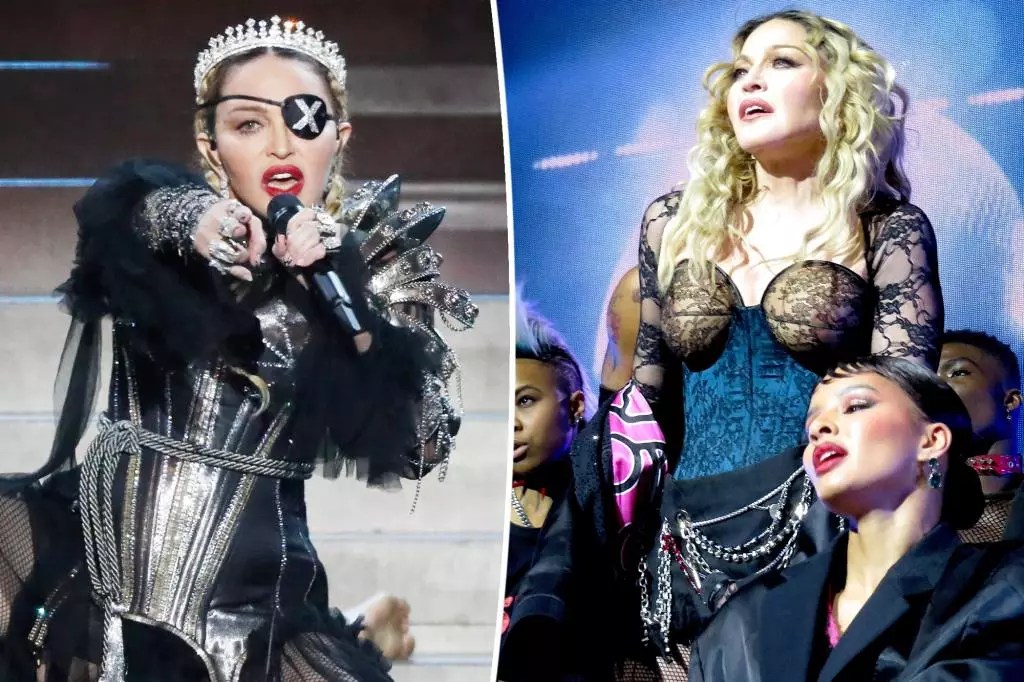Madonna is facing a class-action lawsuit filed by fans seeking compensation after the pop star’s concerts started hours later than advertised during her New York City “Celebration” tour. The lawsuit, filed by Michael Fellows and Jonathan Hadden, alleges that Madonna’s tardiness constitutes false advertising and unfair trade practices. However, Madonna’s lawyers have requested a federal judge to dismiss the case, claiming that the plaintiffs’ inconvenience does not amount to legal injury.
According to Madonna’s legal team, there was no misrepresentation in the advertised start times of the concerts, and fans received the experience they paid for. They argue that it is common for major arena concerts to have opening acts before the headline act takes the stage, and fans should have expected the main performance to occur later in the evening. The lawyers contend that the lawsuit fails to prove that Madonna’s performance was unsatisfactory or that fans were deprived of the value they paid for.
Response from Madonna Fans and Critics
Despite Madonna’s legal defense, many fans and critics have expressed disappointment and frustration over the late start times of the concerts. Some fans took to social media to demand refunds, while others criticized Madonna for being disrespectful to her audience. The negative feedback highlights the impact of the delays on audience perception and their overall concert experience.
Madonna’s “Celebration” tour has been marred by various controversies, including her delayed start times in New York City and reports of audience dissatisfaction. Additionally, the pop star faced health issues that required the postponement of some shows, leading to further scrutiny and criticism from fans and the media. The tour’s turbulent journey has attracted attention for reasons beyond the music, raising questions about Madonna’s professionalism and commitment to her audience.
Madonna’s legal battle with disgruntled fans serves as a cautionary tale for artists and performers regarding the importance of punctuality and meeting audience expectations. While unforeseen circumstances can sometimes impact show schedules, clear communication and transparency are essential for maintaining trust and goodwill with fans. By addressing concerns proactively and striving to deliver on promises, artists can avoid potential legal disputes and uphold their reputation in the industry.
Madonna’s legal dispute over late concert start times underscores the challenges of balancing artistic freedom with audience satisfaction. While fans may have valid grievances regarding delays and misrepresentations, the complexities of live performances and logistical issues cannot be underestimated. Moving forward, Madonna and other artists can use this situation as an opportunity to improve communication, logistical planning, and overall concert experiences for fans. Ultimately, navigating the delicate balance between artistry and audience expectations is crucial for maintaining long-term success and positive relationships in the music industry.







Leave a Reply